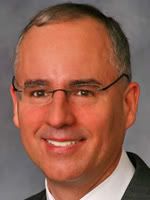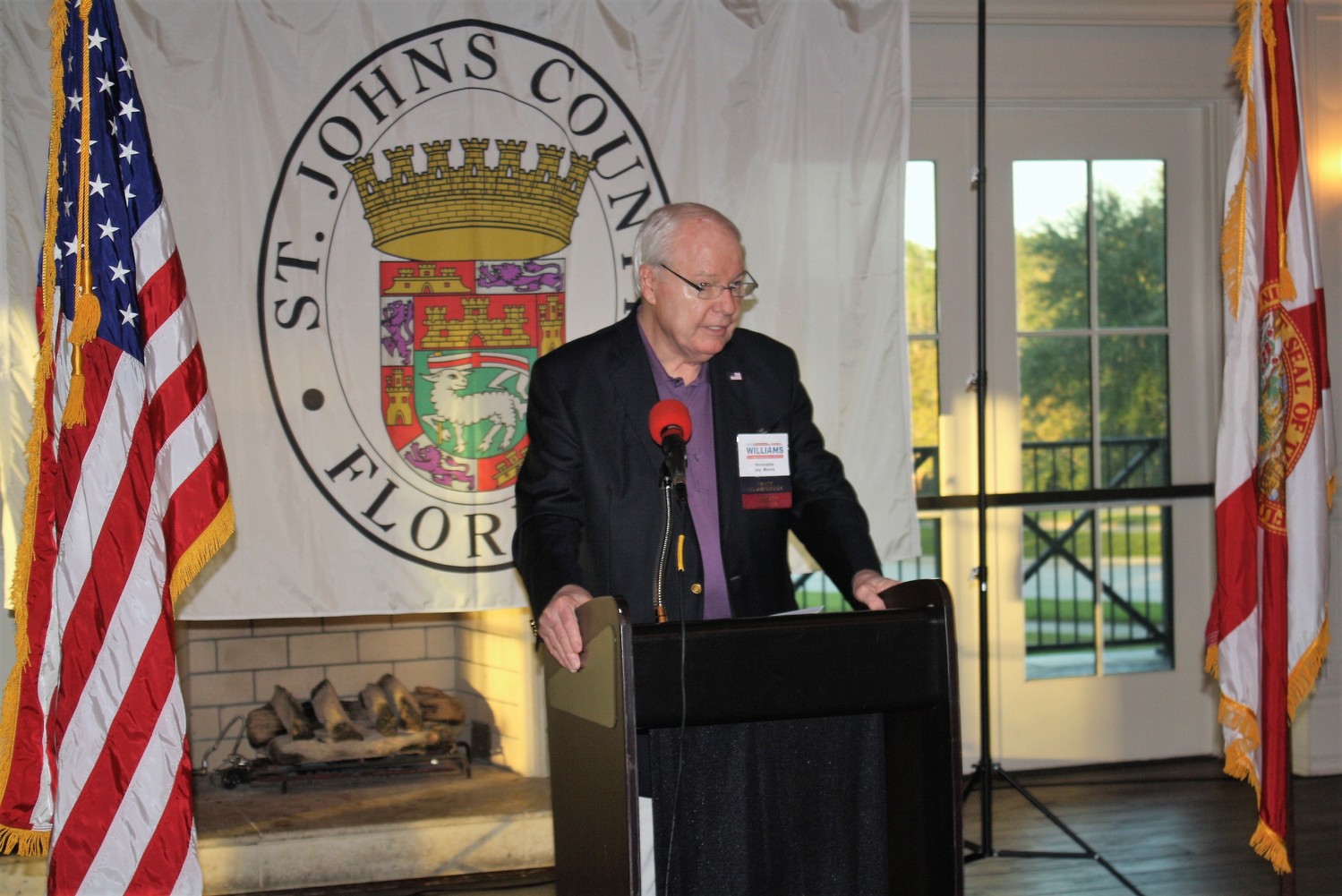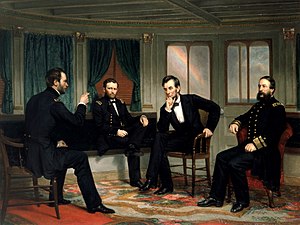Miami billionaire STEPHEN H. BITTEL is resigning as Florida Democratic Party Chair after women complained about inappropriate sexual comments and breast toys in the office.
Note to Democrats: no more billionaire Chairs, please.
Florida Democratic Party chief resigns after accusations of workplace impropriety
BY PATRICIA MAZZEI
pmazzei@miamiherald.com
Miami Herald
NOVEMBER 17, 2017 11:46 AM
UPDATED NOVEMBER 17, 2017 05:23 PM
Stephen Bittel’s rocky tenure as Florida Democratic Party chairman ended in disgrace Friday after he said he would resign following
accusations from women that he leered at them, made suggestive comments and created an unprofessional work environment.
“When my personal situation becomes distracting to our core mission of electing Democrats and making Florida better, it is time for me to step aside,” Bittel said in a statement. “I am proud of what we have built as a Party and the wins we have had for Florida families, but I apologize for all who have felt uncomfortable during my tenure at the Democratic Party.”
Bittel will formally resign next week. Party leaders will elect his successor Dec. 9 in Orlando.
Elected in January after a contentious internal campaign, Bittel lasted less than a year on the job. His departure marks the
latest case of sexual impropriety shaking the state Capitol.
Bittel’s position became untenable after all four major Democratic candidates for Florida governor urged his ouster following a
Politico Florida report late Thursday in which six women anonymously complained about Bittel’s behavior. They said he was “creepy” and “demeaning.” Bittel apologized, but it was not enough.
Vice Chairwoman Judy Mount, the former head of the Jackson County Democratic Executive Committee, will serve as the party’s interim chief and then seek the position permanently. Tampa activist Alan Clendenin, a past chairman candidate, said he will also run.
The calls for Bittel’s resignation from Tallahassee Mayor Andrew Gillum, former U.S. Rep. Gwen Graham, former Miami Beach Mayor Philip Levine and Orlando businessman Chris King made it impossible for Bittel to continue at the party helm.
“I am glad Stephen Bittel resigned — there was no alternative,” Gillum said in a statement. “The FDP must move forward quickly to rebuild their culture and create an inclusive, safe work environment. Beyond changing the culture there, we must all commit ourselves to changing the power structures that have allowed too many men to behave this way for too long. It will not happen overnight, but we cannot tolerate it any longer.”
The gubernatorial candidates weighed in long before the only Florida Democrat elected statewide, U.S. Sen. Bill Nelson, did. Nelson commented on Bittel’s fate after Bittel announced his exit.
“As Stephen Bittel said, he’s stepping aside for the good of the party,” Nelson, who is running for reelection next year, said in a statement. “Sexual harassment is never acceptable.”
Nelson had backed the chairman bid by Bittel, a Coconut Grove developer and longtime Democratic fundraiser. So had U.S. Rep. Debbie Wasserman Schultz of Weston, the former Democratic National Committee chairwoman, who also didn’t comment Friday on the accusations against Bittel until after his resignation statement.
“Stephen Bittel did the right thing for the party, one that he’s worked so hard for in the past,” she said. “But as a party and as a society, we must learn from this.”
Emails released in July 2016 by WikiLeaks showed DNC staffers so disliked Bittel — then co-chairman of the DNC’s national finance committee — that they
wanted to seat him awayfrom President Barack Obama at a Grove fundraiser.
RELATED STORIES FROM MIAMI HERALD
No one has accused Bittel of inappropriately touching women. But the six women who spoke anonymously to Politico Florida said his inappropriate comments and penchant for keeping breast-shaped stress-squeeze balls in his office — which Bittel said were gags — made it uncomfortable to work with him.
“There was a lot of boob stuff in his office,” a former fundraiser who interacted with Bittel told Politico Florida. Several women said they tried not to leave each other alone with Bittel in his office, home or private jet.
In his initial apology, Bittel said he would “do better.”
“Every person, regardless of their gender, race, age or sexuality should be treated with respect and valued for their hard work and contributions to our community and if any of my comments or actions did not reflect that belief I am deeply sorry,” he said in a statement. “I have much to learn, but my goal is and has always been to make sure every member of our party has a safe environment in which to succeed. It seems I’ve not been successful in that goal, and I will do better.”
Starting with Gillum, the gubernatorial candidates then said only Bittel’s resignation would be acceptable.
King noted the national wave of sexual harassment and assault allegations against powerful men in media, the movie industry and politics, including in Tallahassee’s insular and male-dominated Florida Legislature.
“It’s not right that it’s taken so long, but unveiling a culture of harassment is a vital step to building the just and fair society we hope to be,” King said. “It’s on all of us now to hold perpetrators accountable. The breadth and depth of these allegations speak to a larger problem with the environment in Tallahassee and more generally in our politics.”
Republican gubernatorial candidate and state Sen. Jack Latvala of Clearwater stepped aside from his position as Senate budget chief and was placed under investigation over
harassment allegations, which he has denied. Former Senate Democratic Leader Jeff Clemens of Atlantis
resigned after admitting he had an affair with a lobbyist.
Read more here: http://www.miamiherald.com/news/politics-government/state-politics/article185207928.html#storylink=cpy
==================
Bittel resigns as Florida Democratic Party chief following report of demeaning women
TALLAHASSEE — Florida Democratic Party Chairman Stephen Bittel resigned on Friday in the face of a torrent of top Democrats — including the entire 2018 gubernatorial field — demanding he step down from the high-level post.
His resignation follows a POLITICO
report published Thursday night that he had a history of making demeaning remarks toward women, according to former party staffers and consultants.
“When my personal situation becomes distracting to our core mission of electing Democrats and making Florida better, it is time for me to step aside,” Bittel said in a statement.
The women interviewed by POLITICO said Bittel created an unprofessional workplace environment for women, noting that he made persistent inappropriate comments, leered at young women and even invited them on his private jet.
The women, who were reached independently by POLITICO and insisted on anonymity out of fear for their jobs, said Bittel never inappropriately touched or threatened them. But he made them feel so uneasy that they didn’t want to be alone with him due to his body language, suggestive remarks and even the breast-shaped stress squeeze-ball he has been known to keep on his desk.
Bittel was just elected to the post in January following a contentious race. He had the support of Sen.
Bill Nelson and Rep.
Debbie Wasserman Schultz, two of the most prominent Florida Democrats.
On Friday morning, the entire 2018 Democratic gubernatorial field was calling on him to resign.
Tallahassee Mayor Andrew Gillum, one of three top gubernatorial candidates, applauded Bittel's decision to leave the job.
“I am glad Stephen Bittel resigned — there was no alternative," he said in a statement. "The FDP must move forward quickly to rebuild their culture and create an inclusive, safe work environment."
Earlier, Democratic candidates Gwen Graham, Chris King and Miami Beach Mayor Philip Levine had all urged Bittel to turn in his resignation.
Graham, a former congresswoman, said she had called Bittel and “told him that he should step down.”
“None should have to work in an uncomfortable environment,” her campaign said in a statement. “Bittel’s behavior and the atmosphere he has created is unacceptable."
Levine said it was time to “change the culture” at the Florida Democratic Party. “No individual should feel less than safe and comfortable in their workplace," he said in a statement.
King, a businessman, said the stories of Bittel and others in the Capitol speak to "a larger problem with the environment in Tallahassee and more generally in our politics."
Nelson and Wasserman Schultz could not be reached for comment Friday.
-------------------------------
From Bloomberg:
COMPANY OVERVIEW OF TERRANOVA CORPORATION
Executive Profile
Stephen H. Bittel
Founder and Chairman, Terranova Corporation
Age 61
Background
Mr. Stephen H. Bittel founded Petroleum Realty Investment Partners, L.P in 1999 and serves as its President. Mr. Bittel is the Founder of Terranova Corporation and has been its Chairman since July 1980. He also serves as the President at Flagler Retail Associates, Ltd. Mr. Bittel has been a Director of Aldabra 4 Acquisition Corp. since August 24, 2007. Mr. Bittel is a Board member and Vice Chairman of Development of the National Jewish Democratic Council and has led the Greater Miami Jewish Federation's Washington Mission in 2009 and 2010. He served as Director of Great Lakes Dredge & Dock Corporation since January 1, 2011 until December 31, 2014. He served as Chairman of the Miami Chapter at the Young President Organization. He serves as Director of Great Lakes Dredge & Dock Company LLC. Mr. Bittel serves on the Advisory Board of Florida International University Foundation and Alonzo Mourning Charities Board of Directors. Mr. Bittel served as Director on the Boards of the Community Partnership for the Homeless, the Miami-Dade Expressway Authority and the Jackson Memorial Hospital Foundation. In 2005, Mr. Bittel was awarded the South Florida Business Journal “Ultimate CEO“ award. Mr. Bittel is a Member of the United Jewish Committee Young Leadership Cabinet, the Florida Bar Association, the Real Estate Round Table, the Mortgage Bankers Association and the Young President Organization. Mr. Bittel is an At-Large member of the Democratic National Committee, serves on the Rules and Bylaws Committee. He is a licensed Real Estate Broker. Mr. Bittel received an A.B. from Bowdoin College, magna cum laude in 1978 and a J.D. from the University of Miami School of Law in 1982.
From
Politico:
Florida Democratic Party chair apologizes after 6 women complain of 'demeaning' behavior
TALLAHASSEE — Six former Florida Democratic Party staffers and consultants say that current party Chairman Stephen Bittel has created an unprofessional workplace environment for women that includes persistent inappropriate comments, leering at young women and even inviting them on his private jet.
The women, who were reached independently by POLITICO and insisted on anonymity out of fear for their jobs, said Bittel never inappropriately touched or threatened them. But he made them feel so uneasy that they didn’t want to be alone with him due to his body language, suggestive remarks and even the breast-shaped stress squeeze-ball he has been known to keep on his desk.
Depending on the circumstance and the person discussing Bittel, they said he would make references about women cooking dinner, showing their breasts, their age, whether they wanted to ride on his plane, come to his hotel room or if they thought he was attractive.
“There was a lot of boob stuff in his office,” said a woman who was a fundraiser years ago and had to interact with him. “I was told by other women not to go into his bathroom. I was warned.”
In a written statement, a spokesman for Bittel didn’t dispute the women’s accounts and acknowledged he had the breast-shaped stress balls. But, he said, they were a gift “from a former female general counsel of his company years ago as a joke for his birthday. He keeps them in a drawer with other gag gifts.”
Bittel also apologized.
“Every person, regardless of their gender, race, age or sexuality should be treated with respect and valued for their hard work and contributions to our community and if any of my comments or actions did not reflect that belief I am deeply sorry,” Bittel said. “I have much to learn, but my goal is and has always been to make sure every member of our party has a safe environment in which to succeed. It seems I’ve not been successful in that goal, and I will do better."
The gist of the women’s accounts were bolstered by the observations of two male Democrats who worked with them and a former female candidate for a prominent office. They, too, did not want to be identified criticizing Bittel out of fear of angering the powerful party chairman, an independently wealthy developer who has long been a prominent political rainmaker tied to a secretive donor alliance.
Bittel is so-well connected that the state’s best-known Democrats, Sen.
Bill Nelsonand Rep.
Debbie Wasserman Schultz, call him friends and he has hosted President Obama and Vice President Biden at his home. Privately, many women weren’t as much awestruck by Bittel as turned off.
“He’s just so f----ng creepy,” said a former female party staffer, anger palpable in her tone. “He just leers at you, and stares. I don’t know if you know what that feels like, but he just leers at you. I don’t know how to describe the feeling.”
The allegations come at what’s a turning point for addressing sexual harassment, an element that has long been an ingrained part of Florida politics, but only recently has bubbled to the surface in the wake of the Harvey Weinstein sexual-harassment case that rocked Hollywood, media and national politics.
The environment in Florida changed, in large part, following the resignation of former state Sen. Jeff Clemens (D-Lake Worth), who
POLITICO reported had an extra-marital affair with a lobbyist. That was followed by six women
telling POLITICO that state Sen. Jack Latvala touched them against their will or made demeaning remarks about their bodies or appearance. The Pinellas County Republican and gubernatorial candidate, who denies wrongdoing, is facing two Florida Senate complaints for sexual harassment.
In recent days, as Democratic women began approaching POLITICO with their stories, Bittel’s supporters worried it would jeopardize his new post as party chairman, which he won in a disputed party election after the 2016 elections.
Among Democrats, Bittel had a reputation for a brusque style that made enemies or led to mockery behind his back.
Before a 2016 Miami fundraiser, for instance, Democratic National Committee staffers made fun of him and conspired to give him poor seating away from then-President Barack Obama, according to hacked emails published by the group Wikileaks last year. And this June, after his election as chairman, Bittel ran afoul of black lawmakers in a dispute at a party gala where he called some of them “
childish.” Bittel apologized and offered his resignation.
'He’s very demeaning'
The women who spoke with POLITICO about Bittel said there’s often a palpable sense of discomfort when interacting with him, and several described an informal policy of staffers not leaving women alone with the multi-millionaire South Florida commercial real estate developer.
“The biggest thing I will say is that it became a policy that women, especially junior staff, were never to be left alone with him in his office, plane or house,” said a former party staffer.
She said that Bittel’s remarks and the environment he created for women staffers was one of the reasons she no longer wanted to work for the Florida Democratic Party.
“There is a reason I left,” she said. “He’s very demeaning. He’s inappropriate in his comments he makes to women.”
She mentioned that Bittel liked to talk about women’s breasts. But she didn’t want his specific remarks — though corroborated by a second source — printed because she was concerned it would reveal her identity.
The same woman says the fact that Bittel is known within party circles for having a belittling attitude towards women largely explains why the party wasn’t more strident in attacking Latvala after his scandal.
“It’s not an accident they’ve been so quiet,” she said.
Like the others interviewed, she said Bittel would offer rides on his private airplane.
“The most suggestive thing he does is invite women on his plane or over to his home when his wife is not in town,” she said. “It is not like these things are in the eye of the beholder, the suggestion is very clear … His reputation is very clear, and it has been there since before he was party chairman.” Bittel was elected to the job earlier this year.
‘Why ask about a woman’s boyfriend?'
A former party fundraiser who spent time working in Bittel’s office prior to his time as chairman said he was overtly “creepy towards women.”
She did not work directly for Bittel but during her time working with FDP she regularly interacted with him. One of her most indelible memories was Bittel’s frequent inquiries about her boyfriend.
“Really, who does that. Why would he ask about a woman’s boyfriend?” she said. “And it was not like a ‘how is your significant other doing?’ It was not that at all.”
She said shortly after leaving the Florida Democratic Party, there was a memorable goodbye call with Bittel. He asked if he could help her in her next career move, and then asked whether she might consider moving to Miami for a job opportunity. And then she recalls him saying, “‘will your boyfriend be moving with you?’”
“I hung up,” she said.
She quickly called back with a clear message.
“I’ve never had this type of guts, so I’m not sure where it came from, but I told him he’s creepy towards women, makes them feel uncomfortable, and it’s not ok,” she said. “It needs to stop.”
In response, he sent a text message she remembers clearly.
“Thank U [sic] for ur [sic] honesty,” she says he wrote back. “I hope your words make me better.”
‘It’s inappropriate’
A recently departed Florida Democratic Party staffer tells a similar tale, underscoring a consistent theme with women overtly uncomfortable being alone around the party’s chairman.
“He makes comments about what women wear, about how they look,” she said. “It’s inappropriate.”
She said there are women she knew that have left the party, in part, because of how Bittel interacted with them.
“It just, at a certain point, becomes difficult and uncomfortable to do your job,” she said. “And everyone there knows that.”
Another young woman staffer who no longer works for the party said she made sure not to be alone with Bittel. But one time in the office, she said, he wound up standing so close to her that she felt uneasy. A co-worker, she said, spied the situation and made sure to enter the room and stay there.
“He never said or did anything, but he was just too close and I just felt him in my space,” she said. “He was just a weird, creepy guy to be around … Maybe he doesn’t know how to read a room or control his voice.”
A fifth woman who also formerly worked at FDP headquarters in Tallahassee said she remembered the first time she met Bittel he commented on her looks and then asked her “do I look good?” The woman, who was older than the younger staffers Bittel was known to be interested in, said the comments struck her as inappropriate because she felt “objectified. I mean, who does that the first time you meet them?”
Bittel also kept a breast-shaped squeeze ball on his desk. “It was weird,” she said. Another Democrat said it just made people “uncomfortable.”
The strange behavior of Bittel wasn’t just limited to staffers and consultants. A former female candidate for office recalls bringing two young attractive young staffers with her to see if she could rustle a donation out of the donor.
Bittel didn’t pay much attention to her, but he spent time staring at her two staffers, the candidate told POLITICO. She said Bittel kept remarking about the young women’s age.
“I felt uncomfortable leaving them in the room with him,” she said. “It was kind of icky.”
“I didn’t even get the check,” she added.
A consultant who worked years ago with Bittel she recalled he would enjoy talking about young women and repeatedly brought up topics, such as the sex lives of others, that she would often “try to shut down. But he would bring it up again.”
She said she hoped Bittel had changed his ways and said she was disappointed, but not surprised, that so many women are starting to complain.
“He is not a predator. He’s not a terrible person,” she said. “But he’s inappropriate. And he’s been allowed to be inappropriate for a long time.”
![Ruben Lopez Ruben Lopez]()










































































































































